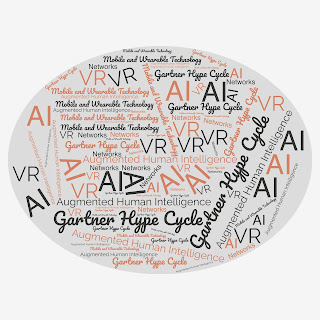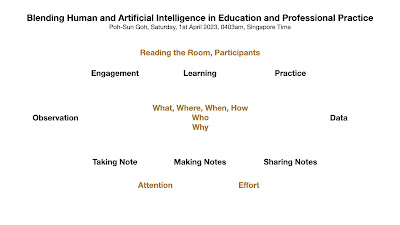Innovations in Medical Education: Getting Beyond the Hype to What Really Works (symposium), Friday, 26 May 2023

Innovations in Medical Education: Getting Beyond the Hype to What Really Works
Medical education, like any other field, benefits from advances driven by innovations over time. However, the innovation process is often misunderstood and mythicized by leaders and the general public. Education and innovation share a unique relationship in that successful innovation involves accelerated learning and development of novel insights. Consequently, the evolution of how we learn and teach impacts how we innovate.
In this symposium, we investigate the role of innovation in advancing the field of medical education to create new, sustainable value for healthcare, patients and society. We define what innovation is and address common misconceptions. Major innovations and their impacts to medical education will be reviewed. We will then explore the current state of education technology which has seen an acceleration in innovation over the past. There will be a focus on promising, emerging technologies. Next, we will describe major systematic approaches to innovation such as design thinking and lean methodology. Finally, we explore how education innovations can be sustained over time, even in low-resource settings.
Moderator: Tao Le
Understanding successful innovations
Ronald Harden
Successful innovations relating to admission to medical studies, the curriculum and assessment of the product will be considered. The penetration and success of the innovations can be attributed to a number of underlying, common factors. A key characteristic, as argued by Simon Sinek (2009) in the book Start with Why, was that they each had a clear purpose. This was to contribute to the delivery of an authentic and relevant programme. Also common to the innovations were four characteristics which had been described by Jack Schneider (2014) as crucial to the adoption of an innovation: perceived significance, philosophical compatibility, occupational realism and inference portability.
New directions in education technology
Poh-Sun Goh
The COVID-19 pandemic shone a bright light on the importance of education technology. We will discuss three new “directions” or paths - exemplified by Virtual/Augmented and Mixed Reality (VR/AR/MR); Artificial Intelligence (AI) including the latest debates on generative AI and ChatGPT; and the current and future promise of mobile technology/networks anchored on 5G and future 6G wireless technology. The discussion will be strongly anchored on addressing the “job to be done” to quote Clayton Christensen. We will frame the use of educational technology in the context of “human needs” by augmenting, expanding and extending our human capabilities and reach, and ultimately bringing us closer together.
Design thinking and other methods of innovation
Tao Le
Contrary to popular belief, major inventions usually do not develop from spontaneous “Aha!” moments of sudden enlightenment. They are more likely to evolve from innovation systems characterized by structured processes implemented by determined teams over an extended period. Design thinking is a human-centered approach to creative problem solving. Focusing on the humans involved such as educators, students and patients is likely to lead better, more impactful products, services and internal processes. We will describe other innovation approaches such as systems thinking, agile methodology and lean startup and their applications.
Sustaining education innovation in low resource settings
Hoan Minh Nguyen
Innovation programs in education can be limited in time and quantity of funding, budgeting, and other support mechanisms. Integrating and sharing the effort with established systems, private-public partnerships, the local community, and other stakeholders is essential to maintain innovation outcomes. We will share work examples from the Partnership for Health Advancement in Vietnam’s (HAIVN) that illustrate how adapting educational innovations can contribute to successful curricular reform at the country’s medical schools in low-resource settings.
⬇
⬇
⬇
Full transcript of my presentation, to be accompanied by Slides below section as background illustration.
⬇
⬇
Goh, PS. 'The vision of transformation in medical education after the COVID-19 pandemic'. Korean J Med Educ. 2021;33 (3): 171-174. Publication Date (Web): 2021 August 27
Travel Award, Paper selected for oral presentation, 50th Japanese Society for Medical Education (JSME) Annual Scientific Meeting, Tokyo 2018
https://medicaleducationelearning.blogspot.com/2018/07/50th-jsme.html
https://medicaleducationelearning.blogspot.com/2018/02/elearning-or-tel-technology-enhanced.html
https://medicaleducationelearning.blogspot.com/search?q=SAMR
Goh, P.S. Technology enhanced learning in Medical Education: What’s new, what’s useful, and some important considerations. MedEdPublish. 2016 Oct; 5(3), Paper No:16. Epub 2016 Oct 12.
see also
Sandars, J., Goh, P.S. Is there a need for a specific educational scholarship for using e-learning in medical education? Med Teach. 2016 Oct;38(10):1070-1071. Epub 2016 April 19.
Goh, P.S. eLearning or Technology enhanced learning in medical education - Hope, not Hype. Med Teach. 2016 Sep; 38(9): 957-958, Epub 2016 Mar 16
Goh, P.S., Sandars, J. An innovative approach to digitally flip the classroom by using an online "graffiti wall" with a blog. Med Teach. 2016 Aug;38(8):858. Epub 2016 Jul 14.
Goh, P.S. Using a blog as an integrated eLearning tool and platform. Med Teach. 2016 Jun;38(6):628-9. Epub 2015 Nov 11.
Learning%20or%20T(e)L%20in%20Med%20Ed.jpg)
---
Closing Pecha Kucha session - AMEE 2016
Technology enhanced learning in Medical Education: What’s new, what’s useful, and some important considerations
Presenter: Poh-Sun Goh
Three "new", topical and trending areas to reflect upon are Virtual Reality (VR)/Augmented Reality (AR)/Mixed Reality (MR); Machine learning or Artificial Intelligence (AI)/big data/data analytics; and Robotics. Four interrelated "useful" features of Technology enhanced learning (TeL) relate to the utility of digital content, the connectivity provided by the internet, the use of mobile devices, and the functionality provided by software and digital applications or Apps. Some "important" considerations using TeL relate to usability, cost, the conscious use of instructional design and pedagogical best practices and evidence, and maintaining a scholarly mindset.
Goh, P.S. Technology enhanced learning in Medical Education: What’s new, what’s useful, and some important considerations. MedEdPublish. 2016 Oct; 5(3), Paper No:16. Epub 2016 Oct 12.
see also
---
#IAMSE 2020 Plenary Highlight Poh-Sun Goh
Medical Educator Roles of the Future
Presenter: Poh-Sun Goh – National University of Singapore
Plenary Address: Tuesday, June 16, 2020, 11:30 AM – 12:30 PM
This session will explore how near future technology can impact how we educate healthcare professionals and the way they provide care.
In this address, the idea is to examine how “new” methods and platforms for displaying information, engaging an audience, extending and expanding the cognitive presence of “the instructor”, and increasingly “guide” will transform the learning experience, and training outcomes, of our educational efforts; and also explore how these same technologies, which will include Artificial Intelligence (AI) and Machine Learning, Virtual Reality (VR) and Augmented Reality (AR), online and re-imagined out-of-the-simulation-center skill training experiences (inspired and modeled after gaming platforms), can augment, enhance, and transform how we educate and train healthcare professionals, along the whole continuum of learning, from undergraduate learning, through postgraduate training, to lifelong learning and continuing professional development settings.
24th Annual IAMSE meeting
---
"6G networks are also said to have the potential to make the digital and physical world indistinguishable through holographic telepresence, as well as augmented reality and virtual reality (VR) technologies.
What’s more, 6G networks could deliver the promise of edge computing, where data processing is done by hardware mounted on, for example, a lamp post close to the user of a self-driving car or a pair of VR glasses, rather than in a data centre located far away. This also means the driverless car or the VR glasses need not be too bulky."
"As for Apple’s upcoming headset, there’s no guarantee the AR/VR gear will be a smash hit. According to The Verge, people who purchased one of Meta’s VR headsets in recent months are using it less often than those who bought them earlier in their life cycles.
That could mean that earlier adopters are simply more interested in the technology, while mainstream consumers aren’t particularly attached to it.
Apple will need its headset to be a truly impressive product if it’s going to drive massive consumer interest."
"The human mind is not like ChatGPT and its ilk, a lumbering statistical engine for pattern matching, gorging on hundreds of terabytes of data and extrapolating the most likely conversational response or most probable answer to a scientific question. On the contrary, the human mind is a surprisingly efficient and even elegant system that operates with small amounts of information; it seeks not to infer brute correlations among data points but to create explanations."
- above quoted from - Noam Chomsky: The false promise of chatGPT
"AI doesn’t take over jobs, it takes over tasks" quoted from "Generative AI: autocomplete for everything"
by Noah Smith and roon, December 1, 2022
Martha Lane Fox warns against hysteria over AI (BBC Technology)
Leonard Kuan-Pei Wang, Praneet Sai Paidisetty & Alicia Magdalena Cano (2023) The next paradigm shift? ChatGPT, artificial intelligence, and medical education, Medical Teacher, DOI: 10.1080/0142159X.2023.2198663
👇
Apple Wants to Solve One of Music’s Biggest Problems
Forget the metaverse. The future is metadata. It’s how the world’s most valuable company built a better way of listening to Mozart and Beethoven.
Ken Masters (2023) Ethical use of artificial intelligence in health professions education: AMEE Guide No.158, Medical Teacher, DOI: 10.1080/0142159X.2023.2186203



















Learning%20or%20T(e)L%20in%20Med%20Ed.jpg)


No comments:
Post a Comment
Note: only a member of this blog may post a comment.